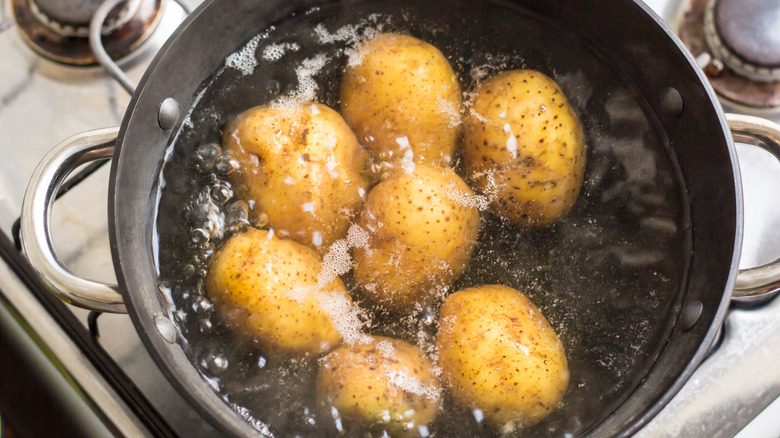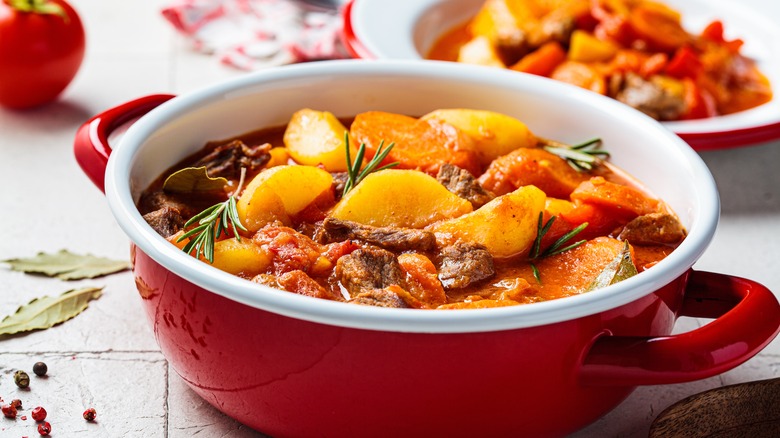Ditch The Acidic Sauces If You Want Potatoes To Boil Quickly
Potatoes are perhaps one of, if not the most versatile ingredients in your pantry. Boiled, mashed, or stewed, they can become everything from perfect latkes to Nonna's gnocchi, not to mention french fries – which can then be topped with poutine, or cheese, or chili. Every culture and cuisine has its own go-to potato dish – Irish colcannon, Indian saag aloo, Polish pierogi – we could go on. The tuber has spread from the Andes where it was originally cultivated, to become a staple in cuisines because of its versatility and long shelf life – much longer than wheat and more nutritious. Europeans in the 1500s realized that potatoes were difficult tax or destroy, especially during periods of political strife and war, unlike grains such as wheat. This led to the potato being the bedrock of the continent's population right through to the second World War.
The starchy spuds are a dense nutrient bomb full of pretty much every vitamin and mineral, from vitamin C to potassium to folate. It's because of their starchiness that, as home cooks, we need to be cautious of how we cook them.
The cellular structure of potatoes doesn't respond well to acidic ingredients
While acidic ingredients like vinegar or lemon juice are great for marinades – the acidic components in them break down the proteins on the surface of the meat and impart flavor – for vegetables, it's not an ideal cooking environment. Harold McGee wrote in his book "On Food and Cooking: The Science and Lore of the Kitchen" that the structure of potatoes is made of hemicellulose, a carbohydrate found in the cell walls. Hemicellulose doesn't break down in acidic environments, but when boiled in water, the starches break down, which gives us the potato-y creaminess we know and love. It's why root vegetables and legumes like potatoes or beans cooked in vinegar or tomato sauce stay crunchy, with an almost raw texture. Ranch Gordo Beans even recommends adding acids like vinegar or lime juice after the beans are cooked.
If you need to add potatoes to anything acidic, like a stew or chili recipe, or vinegar-based dish, cook them most of the way on their own in boiling, salted water before adding them to your dish. That way, the potatoes are cooked, and the acidity in whatever you're cooking will firm them up just a bit to keep their shape.

